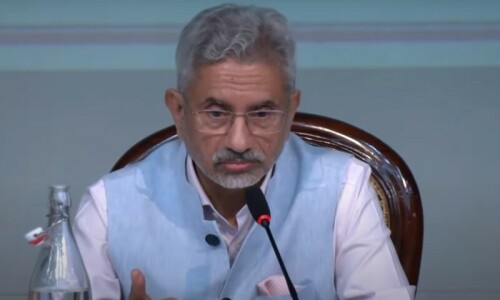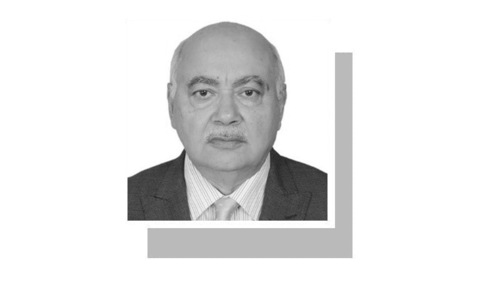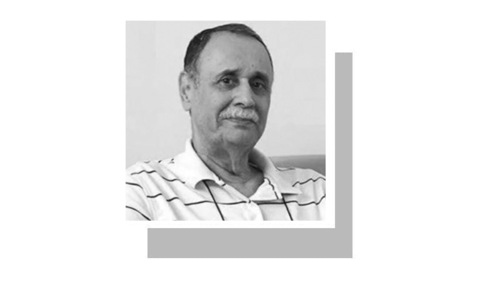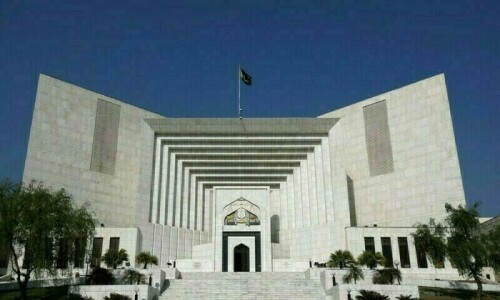BRUSSELS, Feb 16: European Union nations launched on Saturday a justice mission to help ease Kosovo’s transition to independence, but the move was immediately branded an “occupation” by Serbs living there.
“The council has decided to launch the European Union Rule of Law Mission in Kosovo: EULEX Kosovo. The mission’s operational phase is foreseen to start after a 120-day transition period,” the EU said in a statement.
Using a so-called silence procedure, the 27 nations lifted the last political and legal barriers to sending the mission, around 2,000-strong and which will essentially train and mentor police, judges and customs officials.
The EU is coordinating the deployment, the biggest and most ambitious of its kind undertaken by the bloc, with the United Nations and Kosovo authorities.
Kosovo Serb leader Milan Ivanovic quickly slammed the mission.
“In essence, the mission has the characteristics of an occupation and it will be accepted neither by Serbia nor by the Serbs in Kosovo,” he said.
Serbian Prime Minister Vojislav Kostunica had already warned that the mission would be illegal, with “no legal basis” under any UN resolution.
“Brussels might have the intention of sending a mission... but at the same time it is brutally violating international law and (UN Security Council) Reolution 1244,” Kostunica said in Belgrade on Thursday.
That resolution confirmed Serbian sovereignty over Kosovo but established the province as a UN protectorate in 1999, after Nato bombed Belgrade to end a conflict between Serbian forces and Kosovo Albanian separatist militants.
But the Kosovo Albanians are set to declare independence on Sunday and the EU mission will take over all policing duties from the United Nations in four months.
The mission consists of a political entity to supervise the transfer of powers and an operational entity to work with local police, justice and customs officials.
A third element comes from the European Commission, focusing on long-term reform and economic development with a view to eventual EU membership.
In launching the mission, the EU officially appointed retired French general Yves de Kermabon to head it, and named Dutch ambassador Pieter Feith as special EU representative.
“These appointments further illustrate the EU’s enhanced engagement in the Western Balkans,” EU foreign policy chief Javier Solana said in a statement.
“Pieter Feith will in particular offer the EU’s advice and support in the political process and promote overall EU coordination in Kosovo,” he said.
Serbia and its powerful ally Russia are vehemently opposed to independence for the tiny, mountainous province of some two million people, which Serbs consider the historic cradle of their culture and religion.
Within the EU, regional powers such as Greece, Romania and Bulgaria, have expressed concerns that Kosovo independence could further destabilise fragile Balkan stability, but even they agree to the need for the police mission.
Even so EU foreign ministers will meet in Brussels on Monday to try to draw up a “common platform” in response to Kosovo’s expected independence, one which does not include the notion of recognising the new state.
EU leaders committed in December to help with a settlement on the province’s status, including through economic and political assistance and by offering Kosovo the prospect of EU membership some time in the distant future.
But some countries will refuse, at least in the short term, to recognise the new state, making it extremely difficult for the bloc to make any firm promises regarding membership.
Bulgaria, Cyprus, Greece, Romania, Slovakia and Spain are among them, with Malta and Portugal preferring to decide Kosovo’s future at the United Nations.
Spain on Saturday reiterated its opposition to independence, saying a declaration would flout “international norms” as it had not been approved by the UN Security Council where Russia holds veto power.
Other European powers like Britain, France, Germany and Italy however are likely to quickly recognise the move in concert with the United States.—AFP














































Dear visitor, the comments section is undergoing an overhaul and will return soon.